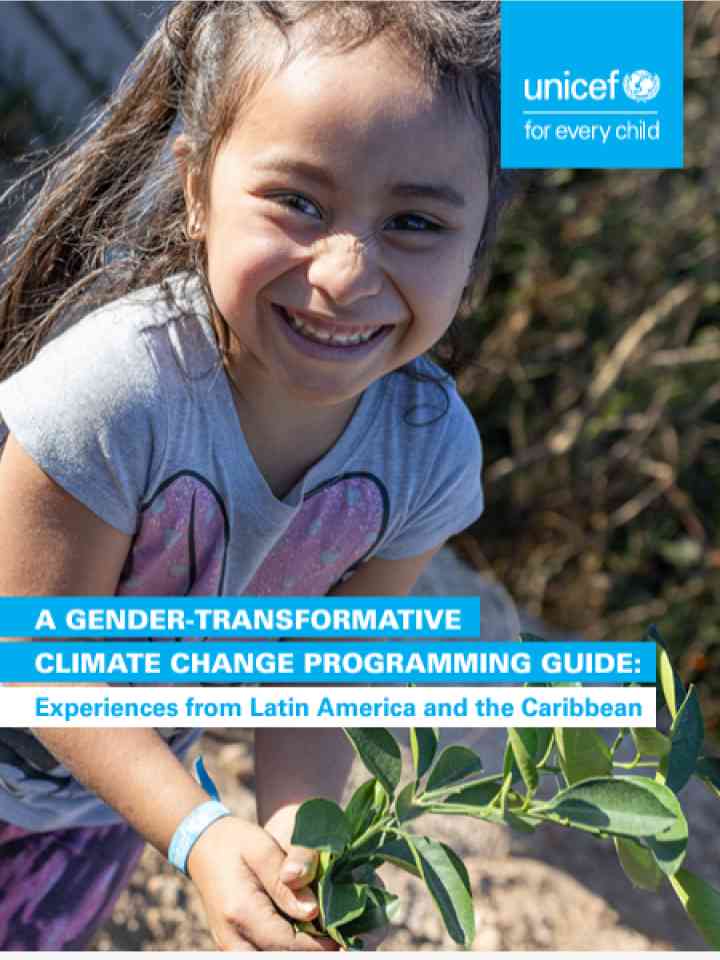A gender-transformative climate change programming guide: Experiences from Latin America and the Caribbean
This guide and accompanying tools have been developed to support and encourage UNICEF country offices globally, partners and stakeholders to plan and implement gender-transformative climate change programmes. Currently, few organizations or initiatives work at the intersection of child rights, gender equality and climate change, and there is a need and opportunity for the United Nations Children's Fund (UNICEF) to spearhead local, national and global action around these critical issues.
The following are some of the ideas for gender-transformative climate action:
- Climate risk studies, humanitarian action plans and post-disaster assessments are conducted using participatory methods, considering the differential risks, impacts and needs of children of different genders, ages and backgrounds and making efforts to collect (as a minimum) sex and age disaggregated data.
- Ensure girls' early involvement in environmental education both in and outside the classroom. This should include reaching girls who are not in the formal education system.
- Advocate for the inclusion of climate change education in education policy and school curricula. Education materials should include building knowledge around the differential impacts of climate change and the structural causes.
- Advocate for climate change analysis, policy, and agendas to recognize the full diversity of needs, for example, by collecting disaggregated data and including consultations with organizations that are already working with vulnerable children.
Explore further

